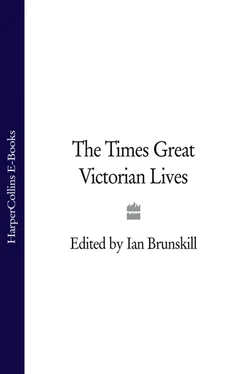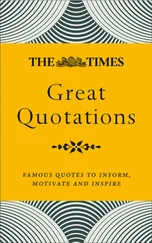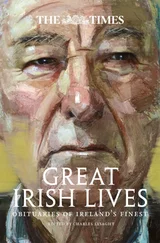Ian Brunskill - The Times Great Victorian Lives
Здесь есть возможность читать онлайн «Ian Brunskill - The Times Great Victorian Lives» — ознакомительный отрывок электронной книги совершенно бесплатно, а после прочтения отрывка купить полную версию. В некоторых случаях можно слушать аудио, скачать через торрент в формате fb2 и присутствует краткое содержание. Жанр: unrecognised, на английском языке. Описание произведения, (предисловие) а так же отзывы посетителей доступны на портале библиотеки ЛибКат.
- Название:The Times Great Victorian Lives
- Автор:
- Жанр:
- Год:неизвестен
- ISBN:нет данных
- Рейтинг книги:3 / 5. Голосов: 1
-
Избранное:Добавить в избранное
- Отзывы:
-
Ваша оценка:
- 60
- 1
- 2
- 3
- 4
- 5
The Times Great Victorian Lives: краткое содержание, описание и аннотация
Предлагаем к чтению аннотацию, описание, краткое содержание или предисловие (зависит от того, что написал сам автор книги «The Times Great Victorian Lives»). Если вы не нашли необходимую информацию о книге — напишите в комментариях, мы постараемся отыскать её.
The Times Great Victorian Lives — читать онлайн ознакомительный отрывок
Ниже представлен текст книги, разбитый по страницам. Система сохранения места последней прочитанной страницы, позволяет с удобством читать онлайн бесплатно книгу «The Times Great Victorian Lives», без необходимости каждый раз заново искать на чём Вы остановились. Поставьте закладку, и сможете в любой момент перейти на страницу, на которой закончили чтение.
Интервал:
Закладка:
The next great work upon which Mr. Stephenson was engaged was the survey and construction of the London and Birmingham Railway, which he undertook in 1833. He had already been employed in the execution of abranch from the Liverpool and Manchester Railway, and in the construction of the Leicester and Swannington line, so that he brought to his new undertaking considerable experience. On being appointed engineer to the company he settled in London, and had the satisfaction of seeing the first sod cut on the 1st of June, 1834, at Chalk Farm. The line was complete in four years, and on the 15th of September, 1838, was opened. The difficulties of this vast undertaking are now all forgotten, but at the time they were so formidable that one poor fellow, who had contracted for the Kilsby tunnel, died of fright at the responsibility which he had assumed. It was ascertained that about 200 yards from the south end of the tunnel there existed, overlaid by a bed of clay 40 feet thick, a hidden quicksand. The danger was so imminent that it was seriously proposed to abandon the tunnel altogether, but Robert Stephenson accepted the responsibility of proceeding, and in the end conquered every difficulty. He worked with amazing energy, walking the whole distance between London and Birmingham more than 20 times in the course of his superintendence. All this time, however, he had not ceased to devote his attention to the manufactory in Newcastle, convinced that good locomotives are the first step to rapid transit; and his assistance was sought by many companies anxious to secure his advice if not more constant service. His evidence before Parliamentary committees was grasped at, and it may be said that in one way or another he has been engaged on all the railways in England, while in conjunction with his father he has directed the execution of more than a third of the various lines in the country. Father and son were consulted as to the Belgium system of railways, and obtained from King Leopold the Cross of the Legion of Honour in 1844. For similar services performed in Norway, which he visited in 1846, Robert Stephenson received the Grand Cross of St. Olof. So also he assisted either in actually making or in laying out the systems of lines in Switzerland, in Germany, in Denmark, in Tuscany, in Canada, in Egypt, and in India. As the champion of locomotive in opposition to stationary engines, he resisted to the uttermost the atmospheric railway system, which was backed with the authority of Brunel, and had at one time a considerable repute, although it is now nearly forgotten. In like manner he had to fight with Mr. Brunel the battle of the gauges, the narrow against the broad gauge, and it is superfluous to say that he was successful here as in all his undertakings. In the sphere of railways he has been since the death of his father the foremost man, the safest guide, the most active worker.
Of his railway doings we have spoken in very general terms, only mentioning the great Kils by tunnel incidentally. It is, however, in this tunnel and in the bridges which he erected for railway purposes that his genius as an engineer is most strikingly displayed, and by these it is that he will be best remembered, Of his bridges, of course, we refer to the high level one at Newcastle, constructed of wood and iron, to the Victoria-bridge at Berwick, built of stone and brick, to the bridge in wrought and cast iron across the Nile, to the Conway and the Britannia bridges over the Menai Straits, and to the Victoria-bridge over the St. Lawrence. Those who care to examine the matter more closely will find a full account of most of these works in an article on iron bridges contributed by Mr. Stephenson himself to the Encyclopaedia Britannica. They are all splendid works, and have made his name famous over the world. The idea of the tubular bridge was an utter novelty, and, as carried out at the Menai Straits, was a grand achievement. Considering the enormous span of a bridge placed across these straits, the immense weight which it has to sustain, and the height to which it must be raised in order that great ships may pass beneath, the undertaking seamed chimerical, and he must have been a man of great daring, as well as of no common experience, who could think of conquering the difficulty. Robert Stephenson, however, fairly faced the difficulty, and threw bridges of 460 feet span from pier to pier across this formidable gulf. It was the first thing of the kind ever attempted, and the success was so triumphant that under Mr. Stephenson’s auspices it has been repeated more than once. In the Egyptian railway there are two tubular bridges, one over the Damietta branch of the Nile, and the other over the large canal near Besket-al-Saba; but they have this peculiarity, that the trains run not, as at the Menai Straits, within the tube, but on the outside upon the top. It is with this method of tubular bridging that Stephenson’s name is peculiarly identified, and by which he will probably be best known to posterity as distinguished from his father, who has almost the entire credit of the railway system.
It will not be supposed that Mr. Robert Stephenson’s labours were confined to the construction and survey of railways. We have reports of his on the London and Liverpool systems of waterworks. In 1847 he was returned as member of Parliament for Whitby, in the Conservative interest. He took a great interest in all scientific investigations and was a member of more than one Scientific Society. As a specimen of his liberality in the cause of science, it may be mentioned that he placed his yacht the Titania – and it is said he had the best manned yacht in the Squadron – at the disposal of Professor Piazzi Smyth, who was sent out with very limited means to Tenerife to make sundry scientific observations, and thus materially assisted the researches of that gentleman. In the same spirit he came forward in 1855, and paid off a debt amounting to 3,100 l ., which the Newcastle Literary and Philosophical Society had incurred, his motive being, to use his own phrase, gratitude for the benefits which he himself had received from it in early life, and a hope that other young men might find it equally useful. It was like the man to do so, for, as we have already suggested, his heart was worthy of his head, and in one form or another he was always doing good.
Robert Stephenson, the only son of George Stephenson, died at his house in Gloucester Square, north of Hyde Park, on 12 October 1859, just short of a month after Brunel. The achievements of both men were a matter of national pride but Stephenson’s relatively humble origins and somewhat basic education rendered him all the more heroic as a prime example of what Samuel Smiles styled ‘Self Help’. Smiles approvingly quotes Stephenson’s modest claim that the development of the railway locomotive was due to ‘not one man, but to the efforts of a nation of mechanical engineers.’ Robert Stephenson was buried in Westminster Abbey underneath a monumental brass designed by Sir George Gilbert Scott. A window in the west aisle of the north transept of the Abbey, installed in 1862, commemorates both Stephensons, father and son.
WILLIAM MAKEPEACE THACKERAY
Novelist and humourist: ‘He…shrouded an over tender heart in a transparent veil of cynicism.’
24 DECEMBER 1863
MR. THACKERAY was found dead in his bed on Thursday morning. Sudden as the loss of Peel, or of Talfourd, or of Lord Macaulay, whose death saddened the Christmas holydays three years ago, – sudden, also, as other recent deaths of able men who laboured worthily in the world’s eye, but whose calling did not bring them so near as that of a foremost novelist to the world’s heart, has been this new cause of public grief. For a few days past Mr. Thackeray had been slightly unwell, yet he was about among his friends, and he was out even on Wednesday evening. But when called at about 9 o’clock on Thursday morning he was found dead in his bed, with placid face, having apparently died without suffering pain. Mr. Thackeray’s age was but 52, and he seemed a man large, vigorous, cheerful, with yet a quarter of a century of life in him. There were some parts of his character that never felt the touch of his years, and these were tenderly remembered yesterday at many a Christmas fireside. There was to the last in him the sensibility of a child’s generous heart that time had not sheathed against light touches of pleasure and pain. His sympathy was prompt and keen, but the same quick feeling made him also over sensitive to the small annoyances that men usually learn to take for granted as but one form of the friction that belongs to movements of all kinds. He was sensitive to his sensitiveness, and did in his writings what thousands of men do in their lives, shrouded an over tender heart in a transparent veil of cynicism. Often he seemed to his readers to be trifling or nervously obtruding himself into his story when he was but shrinking from the fell discovery of his own simple intensity of feeling. In his most polished works, Vanity Fair, Esmond, or the Newcomes – in which last book the affected cynicism, that, after all, could not strike deeper than into the mere surface of things, is set aside, and more nearly than in any other of his works discharge is made of the whole true mind of William Makepeace Thackeray – in these his masterpieces there is nothing better, nothing more absolutely genuine and perfect in its way than the pure spirit of frolic in some of his comic rhymes. He could play with his ‘Pleaseman X,’ very much as a happy child plays with a toy; and how freely and delightfully the strength of his wit flowed into the child’s pantomime tale of the Rose and the Ring. It is not now the time for taking exact measure of the genius of the true writer we have lost. What sort of hold it took upon the English mind and heart his countrymen knew by the sad and gentle words that yesterday connected the sense of his loss in almost every household with the great English festival of lovingkindness. There are men who, appealing to widely spread forms of ignorance or prejudice, have more readers than Mr. Thackeray, and yet the loss of one of these writers on the eve of Christmas would have struck home nowhere beyond the private circle of his friends. Whatever the extent or limit of his genius, Mr. Thackeray found the way to the great generous English heart. And the chief secret of his power was the simple strength of sympathy within him, that he might flinch from expressing fully but that was none the less the very soul of his successful work. Quickly impressible, his mind was raw to a rough touch; but the same quality gave all the force of its truth to his writing, all the lively graces to his style. That part of him which was the mere blind he put up at the inconveniently large window in his breast, degenerated into formula; and there were some who might be pardoned for becoming weary at the repetition of old patterns of sarcasm at the skin-deep vanities of life. But the eye was a dull one that could not look through this muslin work into a mind that so to speak, was always keeping Christmas, although half ashamed to be known at the clubs as guilty of so much indulgence in the luxuries of kindly fellowship, and so continual an enjoyment of the purest side of life. Whatever little feuds may have gathered about Mr. Thackeray’s public life lay lightly on the surface of the minds that chanced to be in contest with him. They could be thrown off in a moment, at the first shock of the news that he was dead. In the course of his active career there are few of his literary brethren with whom he has not been brought into contact. At one time he was a fellow-worker with us in this journal. He worked much and variously; many and various also were his friends. To some of the worthiest in the land he was joined in friendship that had endured throughout the lifetime of a generation, and there are very humble rooms in London where there were tears yesterday for him whose left hand did not know what his right hand had done in silent charity.— Examiner
Читать дальшеИнтервал:
Закладка:
Похожие книги на «The Times Great Victorian Lives»
Представляем Вашему вниманию похожие книги на «The Times Great Victorian Lives» списком для выбора. Мы отобрали схожую по названию и смыслу литературу в надежде предоставить читателям больше вариантов отыскать новые, интересные, ещё непрочитанные произведения.
Обсуждение, отзывы о книге «The Times Great Victorian Lives» и просто собственные мнения читателей. Оставьте ваши комментарии, напишите, что Вы думаете о произведении, его смысле или главных героях. Укажите что конкретно понравилось, а что нет, и почему Вы так считаете.












